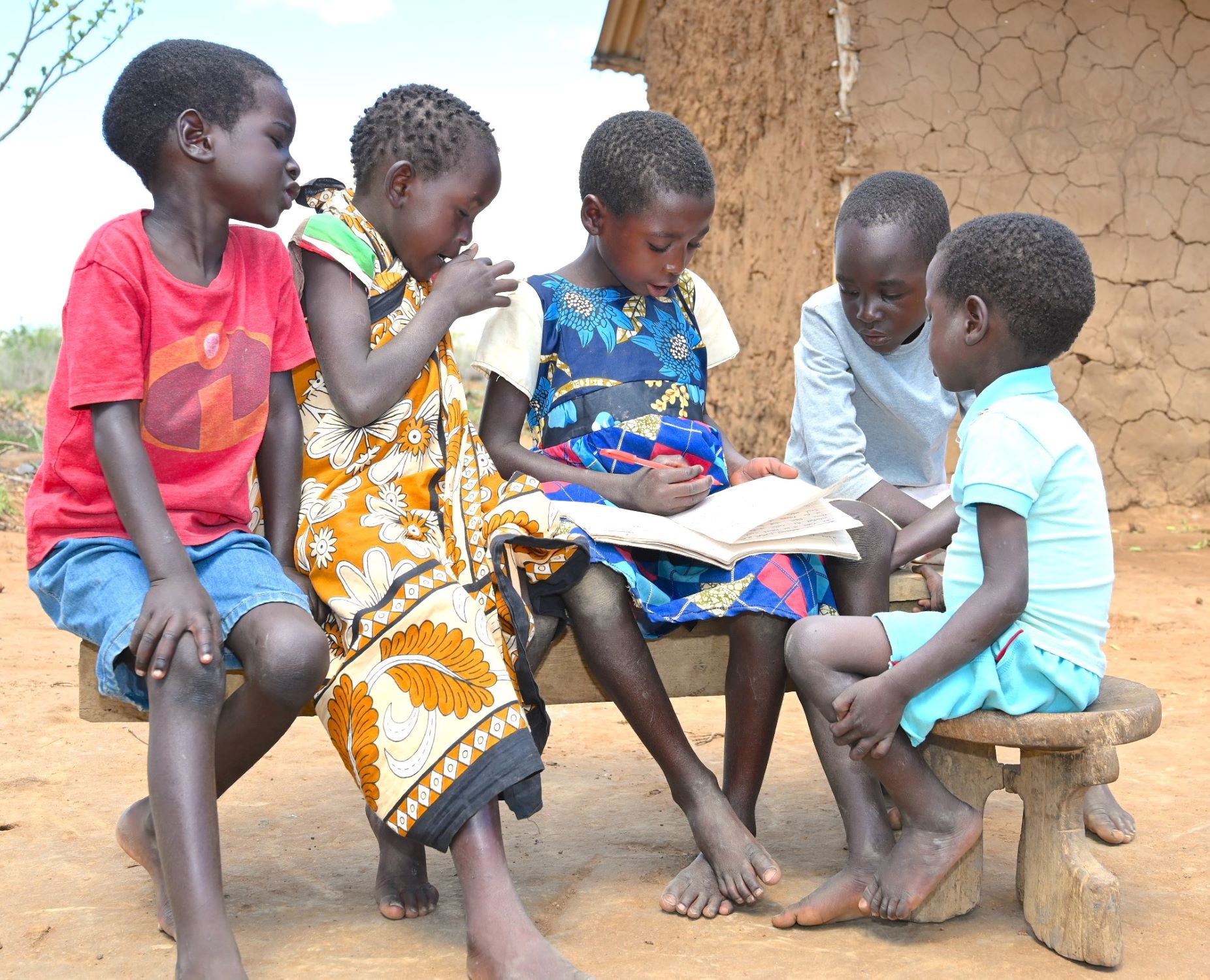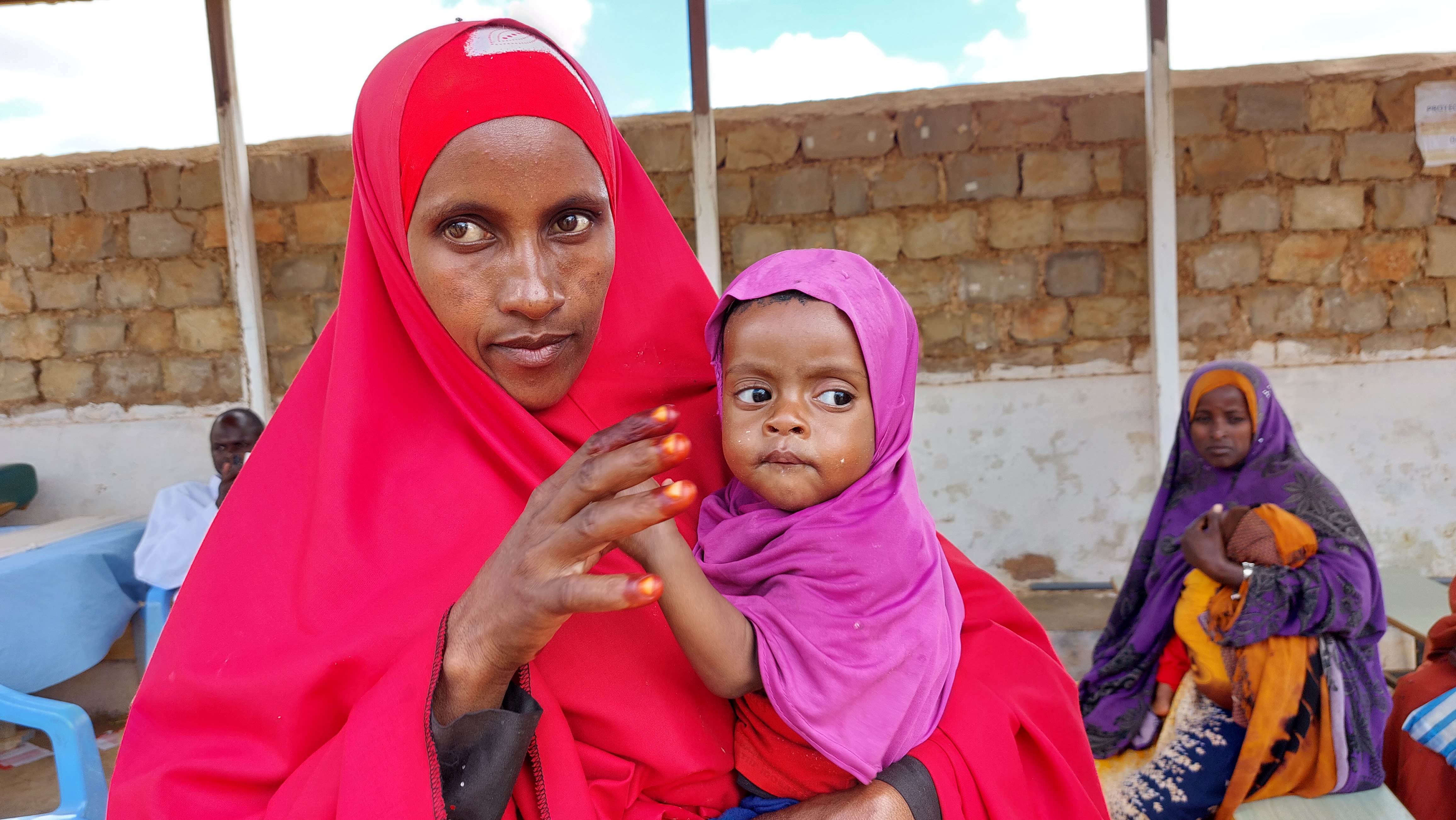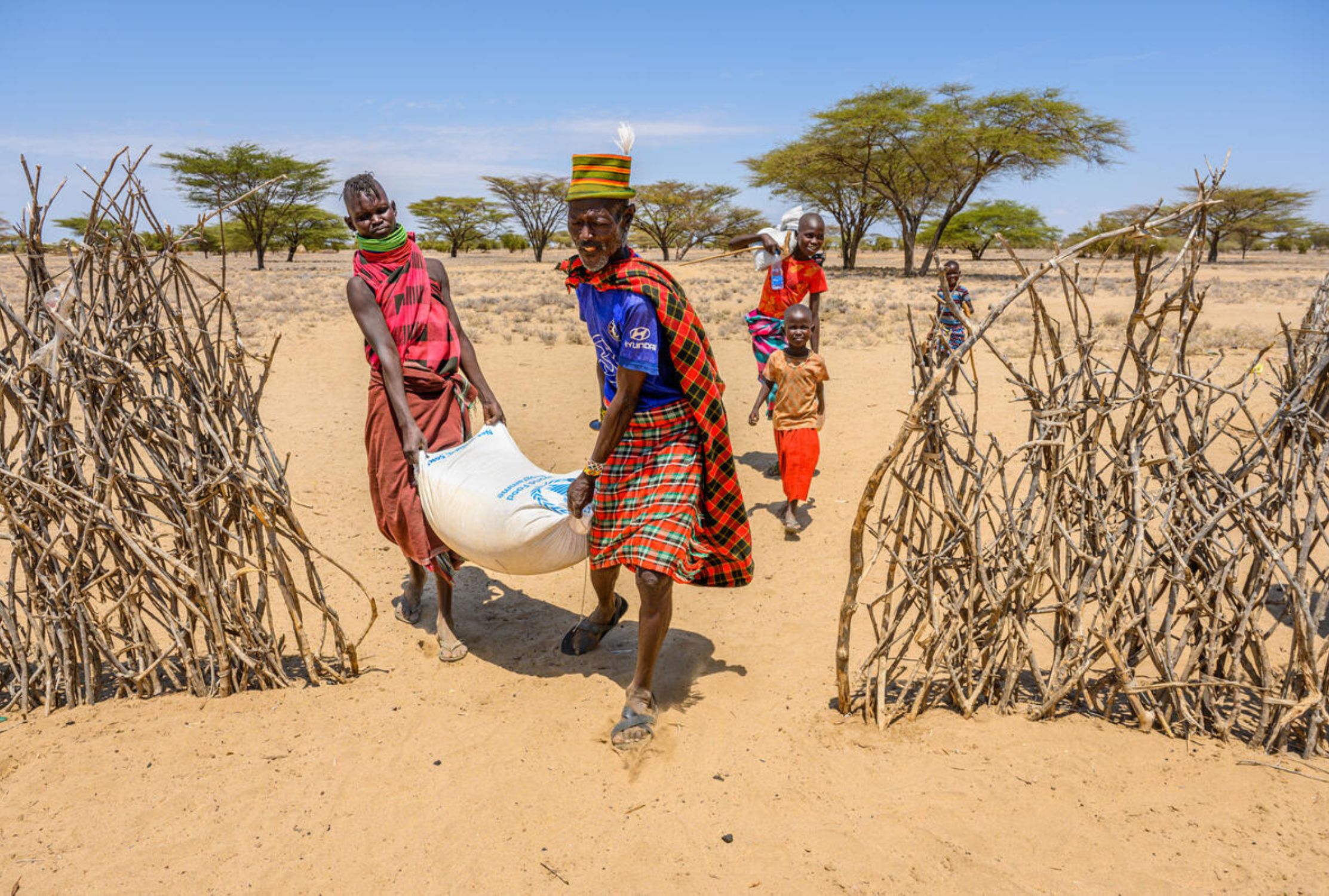
The personal impact of drought
World Vision is working to help drought-impacted communities find a way through…
Photo above: Sidi's daughter, eight-year-old Nadzuwa (holding a book), is among the many children unable to go to school due to poverty caused by the prolonged drought.
For many people, climate change is a catastrophe. It’s causing disasters like droughts, which decimate crops and livestock. With no means of income, families have no food or water. And so many people are going hungry - or being forced from home - in a desperate bid to find food.
International Day Against Desertification and Drought – 17 June 2023 – is a good opportunity to take a personal look at the effects of prolonged droughts – and some ways to combat them.
The droughts never go away
Outside a mud-thatched house In Kenya sits Sidi, who is in her thirties. She lives here with her husband and ten children.
Sidi remembers that when she gave birth to her first three children over 16 years ago life was good. "The rains were regular and so we were able to get bumper harvests from our farms for eating at home and also selling."
But after 2007 the temperatures increased, and kept rising. Lack of rain led to perennial droughts that, according to Sidi, never seem to go away. "The long dry spells have made it impossible for us to grow crops, yet agriculture is our main source of livelihood here. At first, we decided to switch to charcoal business. This seemed a viable option as we had trees all over. So, we would cut them and use the wood to make charcoal for selling," states Sidi.

The increased charcoal burning in the community led to the rapid destruction of forests that previously surrounded the village. Within a short period, the land was left bare, with no trees left for cutting. As the trees disappeared, the droughts intensified, leading to degraded farm lands - making people even more vulnerable to the devastating impacts of the drought.
The community didn’t know the significant role that trees play in mitigating and averting the adverse effects of climate change such as prolonged droughts.
"The heat from the sun has become unbearable. It has dried our water, killed our livestock and prevented our crops from flourishing. The forest that we used to rely on, to make money from charcoal burning, is no more. Nowadays, I am forced to look for manual job opportunities such as soil excavation for construction companies. The jobs are tiring and hard to come by. But they are all I have. If I am lucky, I usually thank God for the opportunity. On the days I get nothing, my heart breaks as I know my children will sleep hungry," Sidi says.
READ MORE: how drought is contributing to the East Africa Hunger Crisis
Nothing to survive on
Sidi also tries to make ends meet with her basket weaving businesses but, "Sometimes, we are also too tired and weak, with no energy to weave the baskets due to lack of food," she says.
These difficulties are pushing many children in the area into child labour as they try to help their parents and families stay afloat. It is common to see many of them herding cattle for well-off families, burning charcoal in faraway villages where a few trees still exist, or breaking hard rocks in search of gemstones in mine fields.
As a result of the poverty caused by the drought, Sidi’s children have had to leave school. "I wanted them to have a better life than mine, but the perennial droughts have made me poor with nothing to survive on. I live with so much guilt, feeling that I have failed my children and failed to break this generational curse of illiteracy and poverty in our family," Sidi adds.
"There's no hope without education. I fear for my girls as without school they will remain powerless and at risk of early pregnancies or forced marriage as people seek to take advantage of their vulnerability. The boys too, may be tempted to engage in unlawful practices, such as crime, to survive."
Sidi's daughter, fifteen-year-old Mwaka, says that she and her siblings have spent many nights hungry and their stomach always hurts. "I pray that God will have mercy on us and bring the rains so we can have enough to eat and to sell. We have acres of land but nothing can grow because it is so hot now. I loved school so much. However, I had to drop out as my parents couldn't afford it. I know that it may be too late for me to go back to school now."
World Vision is helping communities impacted by climate change - not only by providing emergency food. But also by training people; passing on the knowledge and skills so empowered communities can positively change their futures. As well as encouraging farmers to diversify their crops, we are also sharing climate smart farming techniques.

Empowered communities
Zawadi, from Kenya, chairs a Farmers Group. She and others are enjoying a plentiful harvest as a result of adopting climate smart farming methods.
For many years, families relied on rain-fed agriculture for food and income, but this no longer works due to droughts.
Families’ lives were transformed when World Vision provided farmers with drip irrigation kits. Our local teams trained over 500 farmers on climate-smart agricultural techniques, good crop production and soil management, and the importance of savings.
Zawadi says, “During farmer training sessions, we usually make snacks, using produce from our farm. This gave us the idea of starting a catering business; diversifying our income streams. We began the venture using our savings.”
Purity says the restaurant has changed her life for good.
“World Vision turned my dream into a reality!”
“I have achieved what I didn’t believe was possible. World Vision has turned my dream into reality. Life before was difficult. I used to rely on rain for farming and I would watch with pain as the crops dried due to insufficient rainfall. I later joined this group and started farming under drip irrigation. Little did I know, when I started, that I would be running a successful business in no time. From this business, my family lives comfortably. I have constructed a new house and my family has more than enough to eat," Purity says.
"One of our biggest clients is World Vision Kenya. We provide catering services whenever the organisation has events. My heart is filled with joy and gratitude because not so long ago, I used to receive aid from World Vision. But now, I am a service provider for the organisation. I also donate food to the less fortunate in my community," she says.

"I have never had such harvest and earnings before”
Another project which is transforming lives is Farmer Managed Natural Regeneration (FMNR). It empowers communities suffering from the effects of degraded land and climate change. It involves the systematic regrowth and management of trees and shrubs from felled tree stumps, sprouting root systems or seeds. The regrown trees and shrubs – integrated into crops and grazing pastures – help restore soil structure and fertility and increase biodiversity.
“I used to cut down trees indiscriminately. I was naïve,” says 40-year-old Rashid, from a refugee-hosting community in Uganda. The father-of-five got involved in FMNR and now, “I have doubled my yields since I started regenerating trees and shrubs in my gardens. I want to share my experience with others, not just keep it to myself. I have never had such harvest and earnings before. I'm even saving, something I thought wasn't possible."

Sharing with neighbours
Rashid is also helping his neighbours – refugees from South Sudan - and has given four acres of land to five refugee families, adding, "I want us all to have food and income."
Mawa, a refugee helped by Rashid, is delighted. "We no longer worry about running out of food rations because we grow our own. It is enough to take us throughout the year."
Sign up for emails to hear more about World Vision’s work and how you can help protect children living in the hardest places.



